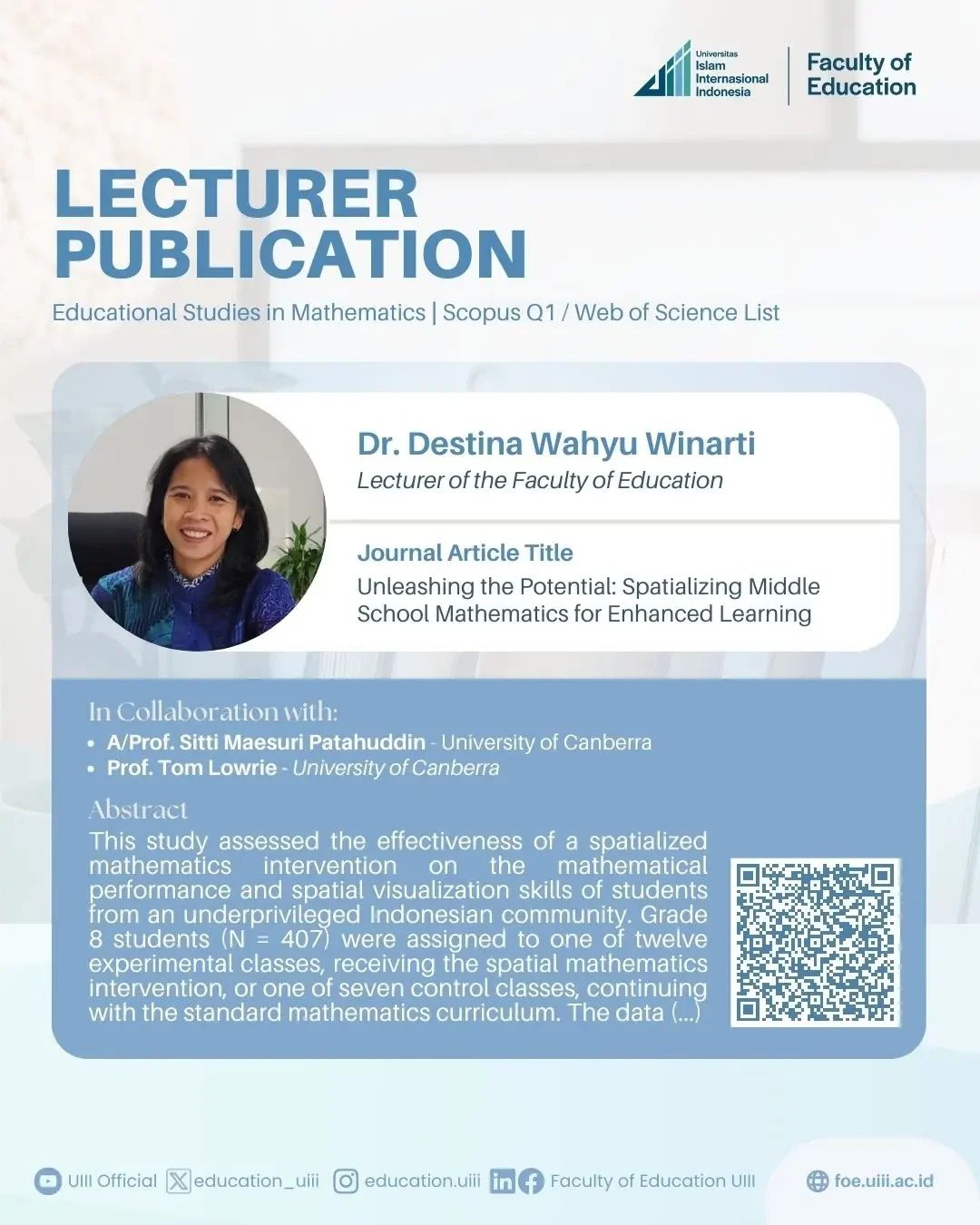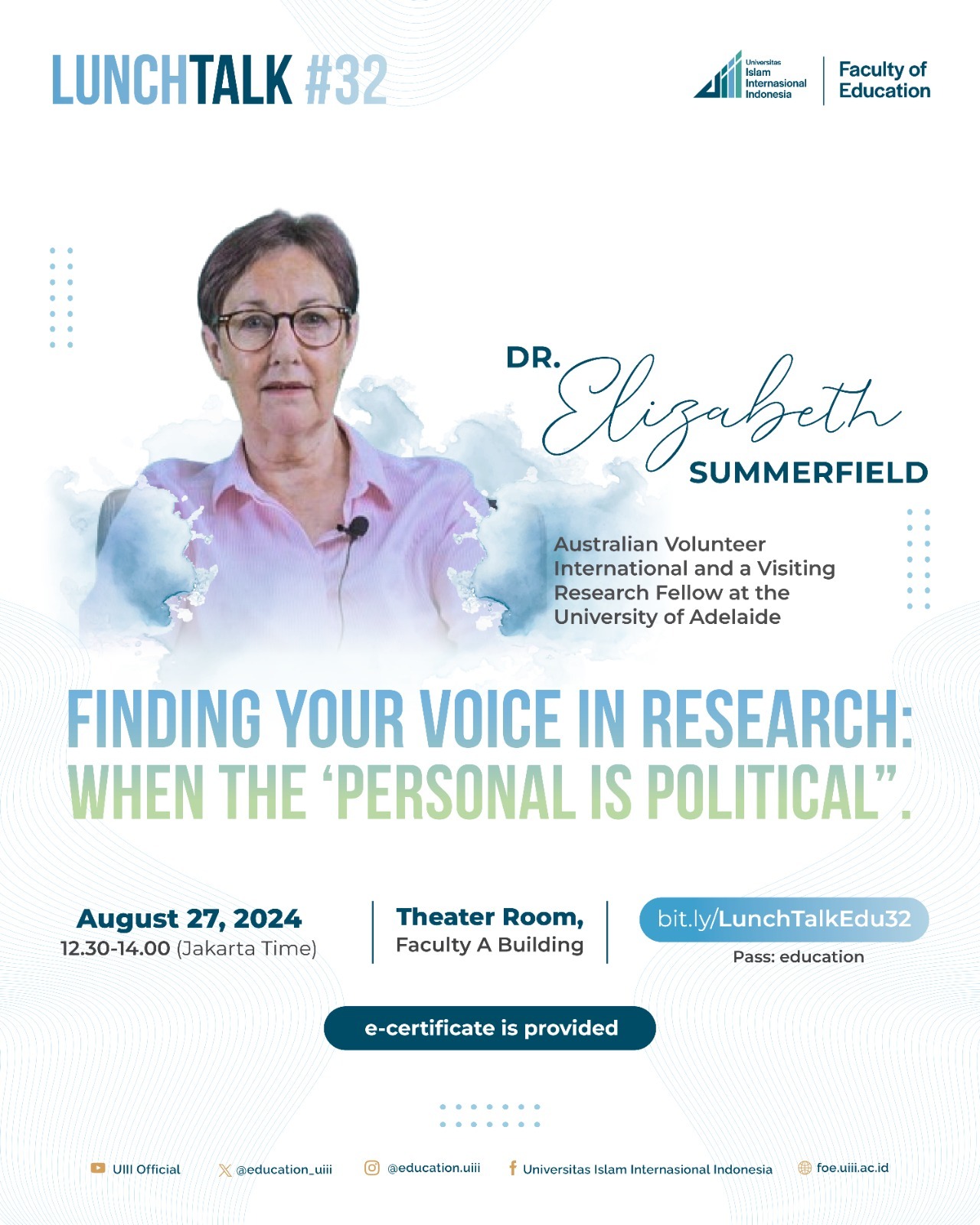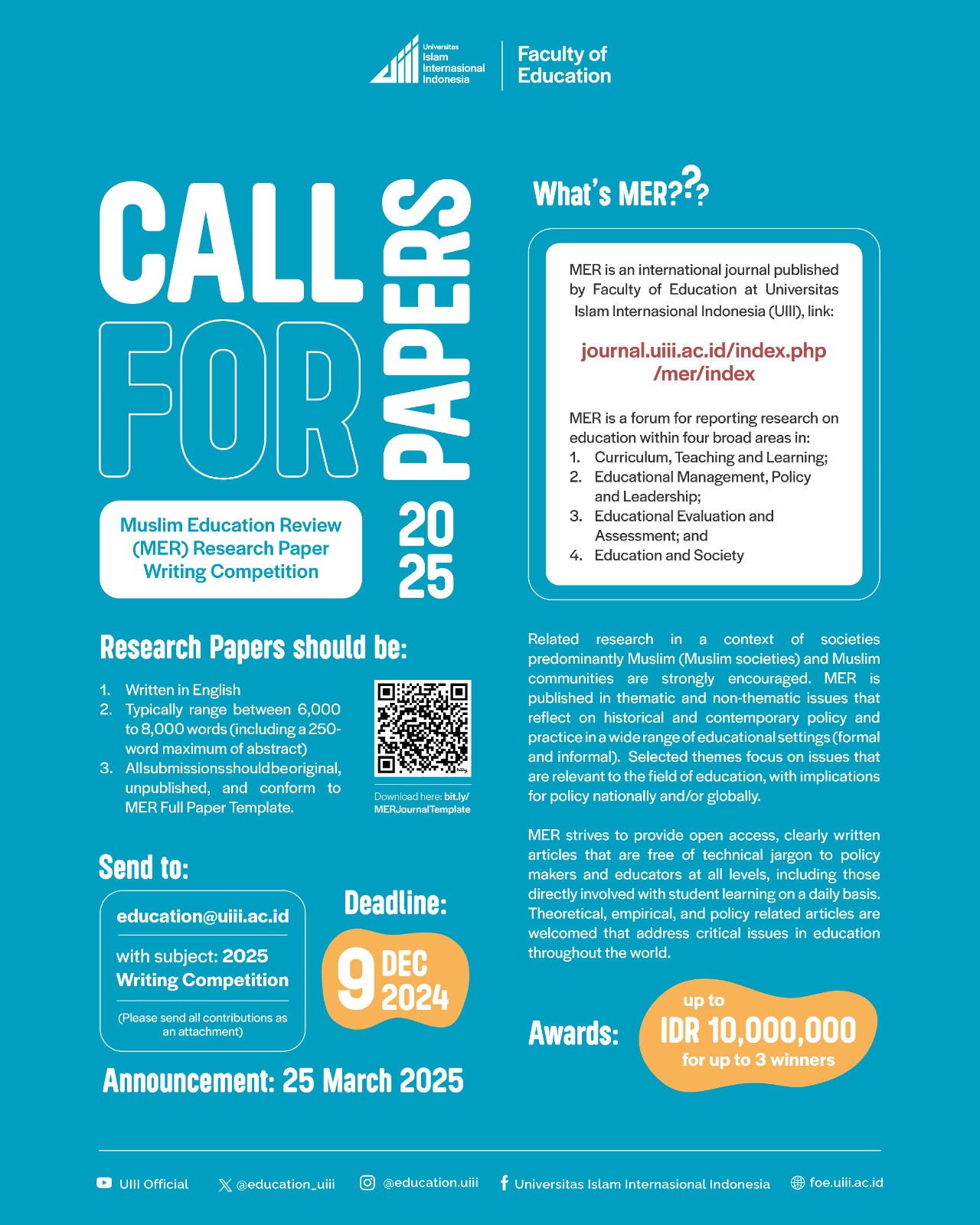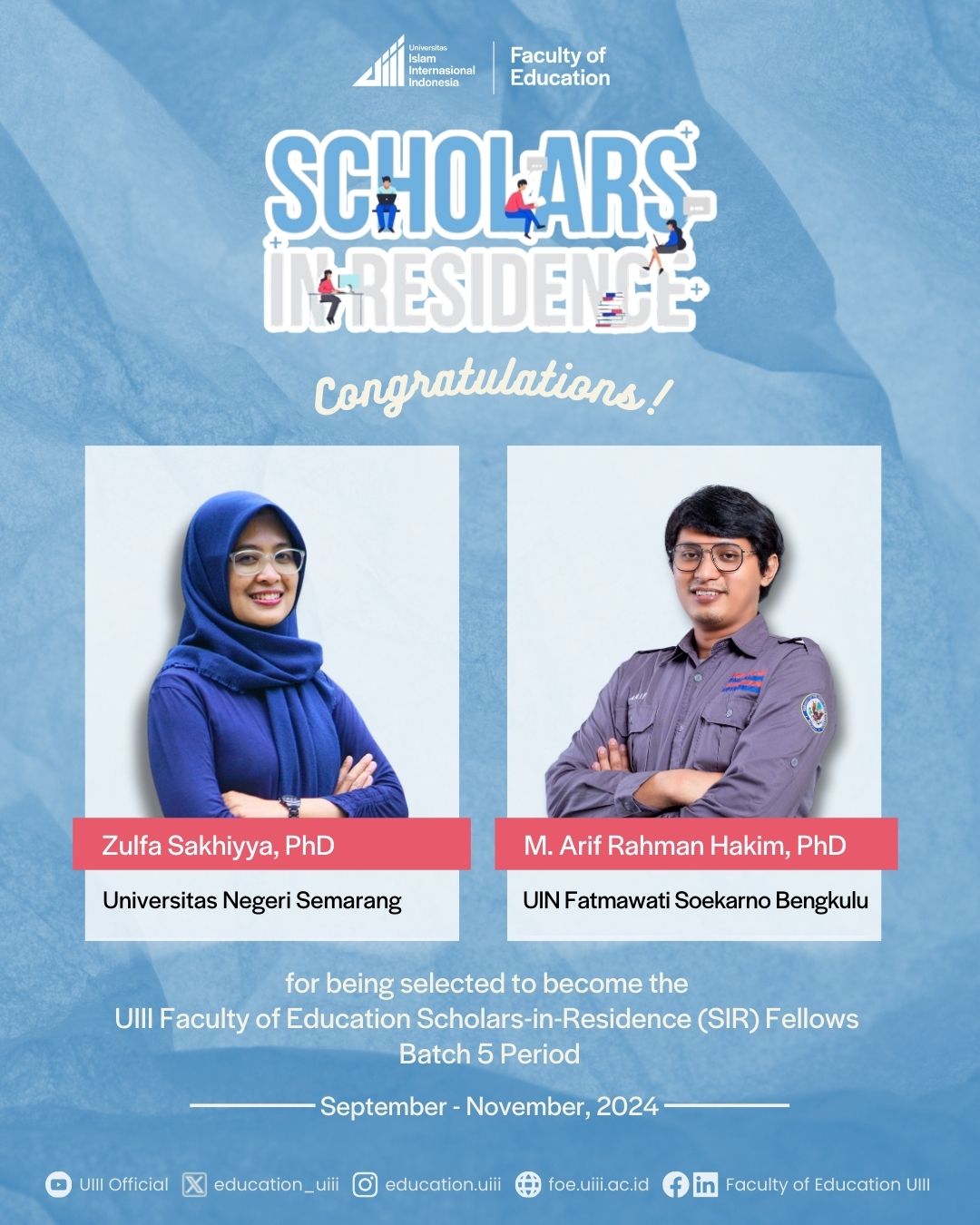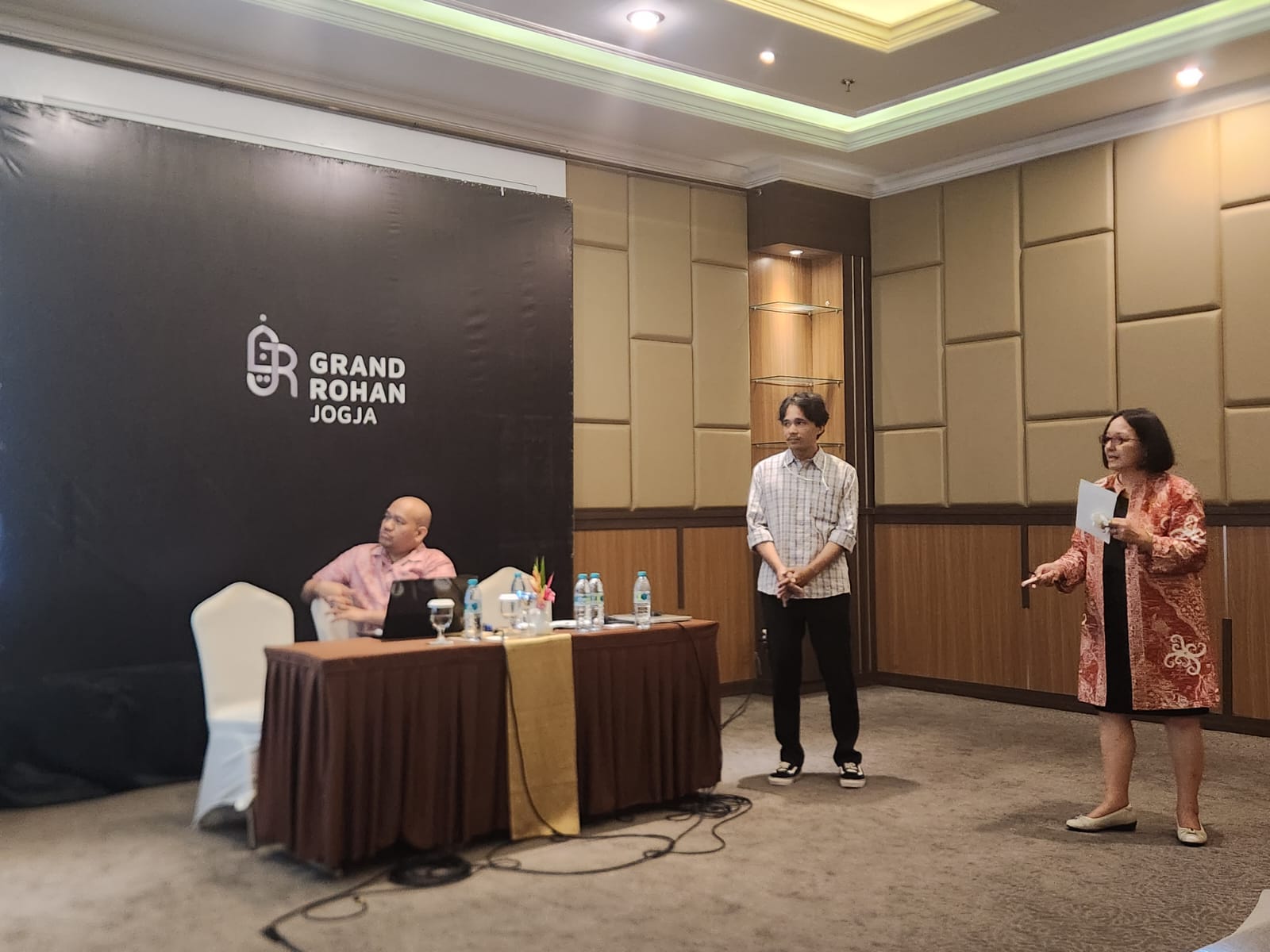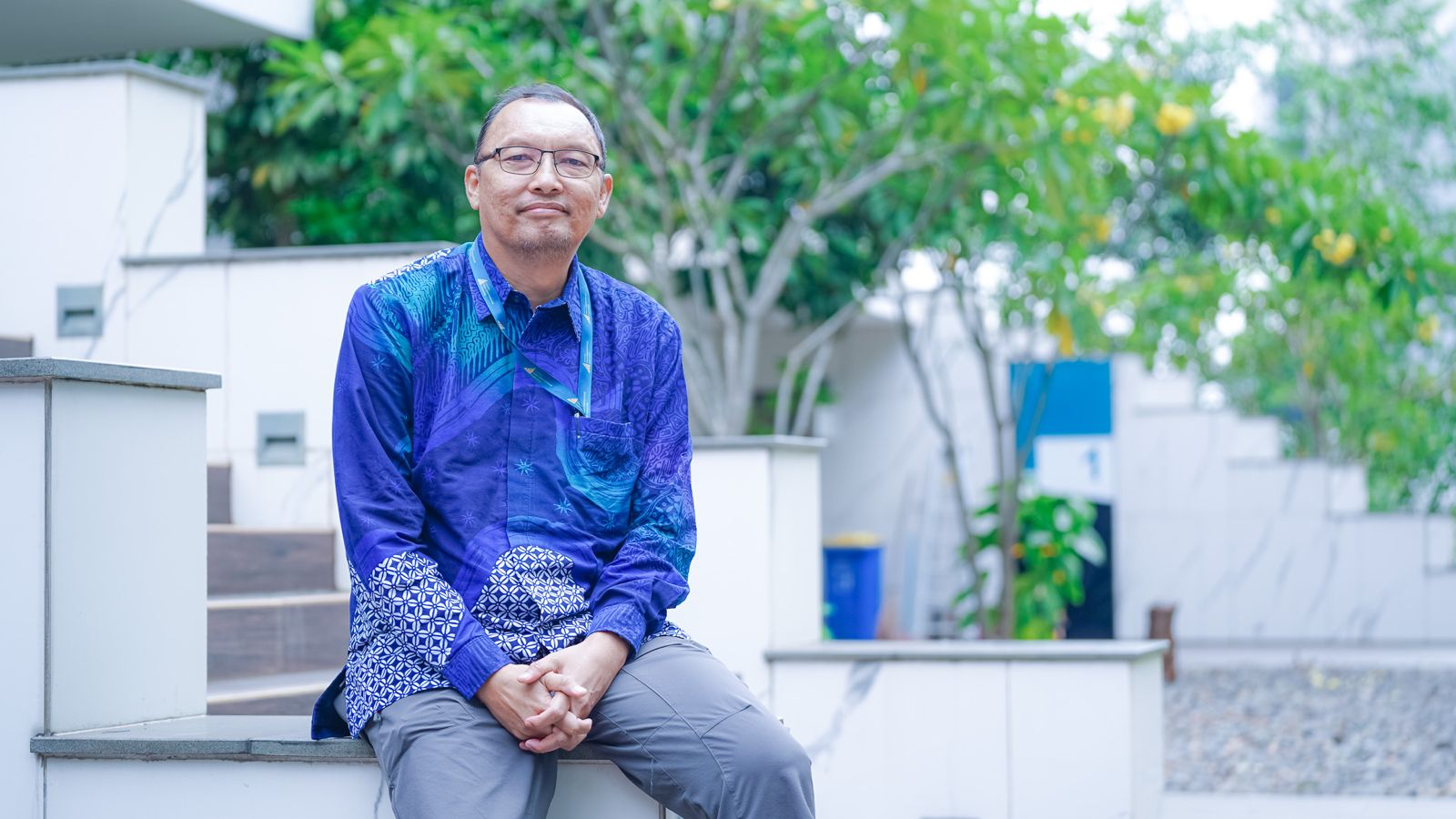Selecting the Top Artisan Woodcraft Projects Using Many Facet Rasch Measurement (MFRM) Model

Mohd Nor, M.Z, Sumintono, B., Nizam, M.S. and Sani, Z. (2024). Selecting the Top Artisan Woodcraft Projects Using Many Facet Rasch Measurement (MFRM) Model. In Zhang, Q. (ed). Proceeding of the Pacific-Rim Objective Measurement Symposium (PROMS) 2023. Atlantis Highlights in Social Sciences, Education and Humanities. https://doi.org/10.2991/978-94-6463-494-5_15
Development and Validation of Students’ Competency Instrument on Science Process Skills.

Karima, E., Ibrahim, S.I., Rasit, H.H. and Sumintono, B. (2024). Development and Validation of Students’ Competency Instrument on Science Process Skills. In Zhang, Q. (ed). Proceeding of the Pacific-Rim Objective Measurement Symposium (PROMS) 2023. Atlantis Highlights in Social Sciences, Education and Humanities. https://doi.org/10.2991/978-94-6463-494-5_20
Using Rasch Model to Assess the Foreign Language Speaking Anxiety Scale (FLSAS) among University Students in Salatiga, Indonesia

Anandi, R.P., Sumintono, B., Zailani, M.A. and Syafitri, R. (2024). Using Rasch Model to Assess the Foreign Language Speaking Anxiety Scale (FLSAS) among University Students in Salatiga, Indonesia. In Zhang, Q. (ed). Proceeding of the Pacific-Rim Objective Measurement Symposium (PROMS) 2023. Atlantis Highlights in Social Sciences, Education and Humanities. https://doi.org/10.2991/978-94-6463-494-5_6
Lecturer Publication 2024: Dr. Destina Wahyu Winarti

Faculty of Education; Lecturer Publication
Measuring the Impact of Islamic Values-Based Scientific Literacy on Scientific Competency of Madrasah Teachers
 Asiyah, Febrini, D., Topano, A., Mustamin, A.A, and Hakim, M.A.R. (2024). Measuring the Impact of Islamic Values-Based Scientific Literacy on Scientific Competency of Madrasah Teachers. International Journal of Learning, Teaching and Educational Research. Vol 23 (4), 476-496. https://doi.org/10.26803/ijlter.23.4.25 https://www.ijlter.org/index.php/ijlter/article/view/10068
Asiyah, Febrini, D., Topano, A., Mustamin, A.A, and Hakim, M.A.R. (2024). Measuring the Impact of Islamic Values-Based Scientific Literacy on Scientific Competency of Madrasah Teachers. International Journal of Learning, Teaching and Educational Research. Vol 23 (4), 476-496. https://doi.org/10.26803/ijlter.23.4.25 https://www.ijlter.org/index.php/ijlter/article/view/10068
Lunch Talk #32: Finding your voice in research: when the 'personal is political'

You are invited to join the Lunch Talk #32 at the Faculty of Education, UIII.
Dr. Elizabeth Summerfield (Australian Volunteer International and a Visiting Research Fellow at the University of Adelaide) will share her presentation under the title: “Finding your voice in research: when the 'personal is political”.
In this talk, she will explain a little about her PhD back story, how it came to influence the questions she asked, what she found out about a leading Australian environmentalist (and Albert Einstein) as a result, and how remembering the phrase 'the personal is political' was important.
Day/Date: Tuesday/August 27, 2024
Time: 12.30-14.00 WIB
Place: Theater, Faculty A Building
Online participation:
https://bit.ly/LunchTalkEdu32
E-Certificate is provided
Thank you!
YouTube Recorded
2025 Research Paper Writing Competition

The Faculty of Education is pleased to announce 2025 Research Paper Writing Competition to be included in its flagship journal publication, Muslim Education Review (MER).
MER is an international journal published by Faculty of Education at Indonesian International Islamic University (IIIU). We invite a wide range of topics in education especially those that are within the journal scopes.
MER is a forum for reporting research on education within four broad areas in:
* Curriculum, Teaching and Learning;
* Educational Management, Policy and Leadership;
* Educational Evaluation and Assessment;
* Education and Society.
Submission papers should be written in English and typically range between 6,000 to 8,000 words (including a 250 word maximum of abstract).
All submissions should be
* Original;
* Unpublished;
* and Conform to MER Full Paper Template: https://bit.ly/MERJournalTemplate
Please send all contributions as an attachment to: education@uiii.ac.id
Subject: 2025 Writing Competition
Awards
The awards include cash payment of up to IDR 10,000,000 for up to 3 winners.
Important Dates
Full Paper Submission: December 9, 2024
Awards Announcement: March 25, 2025
To see previous MER publication, please click this link: bit.ly/MERJournal
Scholars-in-Residence (SIR) Fellows Batch 5, Faculty of Education UIII

✨ Scholars-in-Residence (SIR) Fellows, Faculty of Education ✨
The Faculty of Education is delighted to introduce and announce the result of the Scholars-in-Residence (SIR) Program (Batch 5 for September - November, 2024). Theya are: Zulfa Sakhiyya, PhD (Universitas Negeri Semarang) and M. Arif Rahman Hakim, PhD (UIN Fatmawati Soekarno Bengkulu). Both of them will be participated in many academic activities in the faculty, such as a guest lecturer in MA and PhD courses, giving seminar in Lunch Talk series, open for discussion and consultation for MA and PhD students in the faculty, as well as in social activities too.
Enhancing Quality Assurance Skills at UGM Training
 Enhancing Quality Assurance Skills at UGM Training
Enhancing Quality Assurance Skills at UGM Training
August 13, 2024
Contributor: Moch Faisal Karim | Editor: Supriyono
Yogyakarta, August 10, 2024 – Four academics from Universitas Islam Internasional Indonesia (UIII) recently participated in an intensive training program on the Internal Quality Assurance System (SPMI) and Internal Quality Audit (AMI) at Yogyakarta’s Universitas Gadjah Mada (UGM). The training, held from August 7th to 10th, 2024, aimed to enhance the skills of UIII’s faculty members in quality assurance.
The team included Moch Faisal Karim, PhD, from the Faculty of Social Sciences, Fajar Hirawan, PhD, from the Faculty of Economics and Business, Bambang Sumintono, PhD, from the Faculty of Education, and Faried Fachrudin Saenong, PhD, from the Faculty of Islamic Studies.
The four-day program was divided into two key segments. The initial two days were dedicated to understanding the SPMI framework and its practical implementation. The participants engaged in comprehensive discussions on national policies related to the quality assurance system (SPM Dikti), developed by the Directorate General of Higher Education, Research, and Technology of the Ministry of Education, Culture, Research, and Technology of the Republic of Indonesia, and examined the relationship between internal and external quality assurance systems. They also explored how the internal quality assurance system is integrated into UGM’s academic processes.
The latter half of the training focused on practical applications of AMI. AMI or Audit Mutu Internal, is a structured, independent, and recorded process designed to verify that the activities within an organization are performed according to established procedures and that the outcomes align with the standards needed to achieve the institution's objectives. The participants took part in role-playing exercises and simulated internal quality audits, gaining hands-on experience in planning, conducting, and reporting on quality audits within their respective faculties. The training concluded with presentations of audit reports and discussions on best practices for follow-up actions.
The training was part of UIII’s broader initiatives to elevate quality standards across its faculties and prepare for upcoming accreditation processes. Additionally, it aims to increase the number of certified internal auditors within the university, thereby strengthening internal quality assurance mechanisms. Organized by UGM, the training provided valuable insights and practical skills that will significantly enhance the quality of education and research at UIII.
source: https://www.uiii.ac.id/news/read/57620/enhancing-quality-assurance-skills-at-ugm-training
Dr. Bambang Sumintono Urges Indonesian Researchers to Prioritize Quality in Educational Leadership Studies
 Dr. Bambang Sumintono Urges Indonesian Researchers to Prioritize Quality in Educational Leadership Studies
Dr. Bambang Sumintono Urges Indonesian Researchers to Prioritize Quality in Educational Leadership Studies
August 02, 2024
Contributor: Supriyono | Editor: Dadi Darmadi | Photo: Achmad Jatnika
Dr. Bambang Sumintono, Head of the PhD in Education program at UIII, has called on Indonesian researchers to focus on quality over quantity in researching educational leadership. His recommendation stems from a systematic literature review he conducted, which was published as a book chapter by Routledge.
The chapter, published in 2024, is part of the book "Educational Leadership and Asian Culture," edited by Peng Liu and Lei Mee Thien. In this work, Dr. Sumintono, alongside his two colleagues—Hasan Hariri from the University of Lampung, and Erika Setyanti Kusumaputri from UIN Sunan Kalijaga Yogyakarta, highlights the tendency of local researchers to prioritize the volume of research output rather than the quality of their academic works.
| Read the full article: School Leadership and Indonesian Culture: Revealing the Local Knowledge Development in Post-New Order Indonesia |
A unique aspect of Dr. Sumintono’s chapter is its focus on the "hidden literature", which are research articles written in the Indonesian language and stored in the GARUDA Digital Reference Collection, managed by the Indonesian Ministry of Education and Culture. By examining these often-overlooked resources, the chapter sheds light on insights that are critical for both local and international scholars.
“The review indicates a significant increase in publications on educational leadership starting in 2013, coinciding with the Directorate General of Higher Education's mandate requiring scientific publications as a prerequisite for graduate students' graduation and for lecturers' promotion,” Dr. Sumintono noted.
The policy, he admitted, has led to a surge in the number of publications. However, it has also had unintended consequences. The rapid increase in research output has, in some cases, led to a rise in conference proceedings and potential predatory publications, which could harm the reputation of Indonesian researchers.
“This shows that the ‘frog leap’ policy to international publications in fact needs to be done in stages, whereby empowering local and national journal publications should be the first priority,” Dr. Sumintono advised.
UIII, through its Faculty of Education, is dedicated to equipping scholars with the skills necessary to become outstanding researchers. The faculty offers four concentrations, one of which is Educational Policy, Management, and Leadership. This concentration is designed to prepare students for leadership roles and policy-related work. Through this concentration, UIII aims to cultivate a new generation of education leaders who can drive positive change in society.

